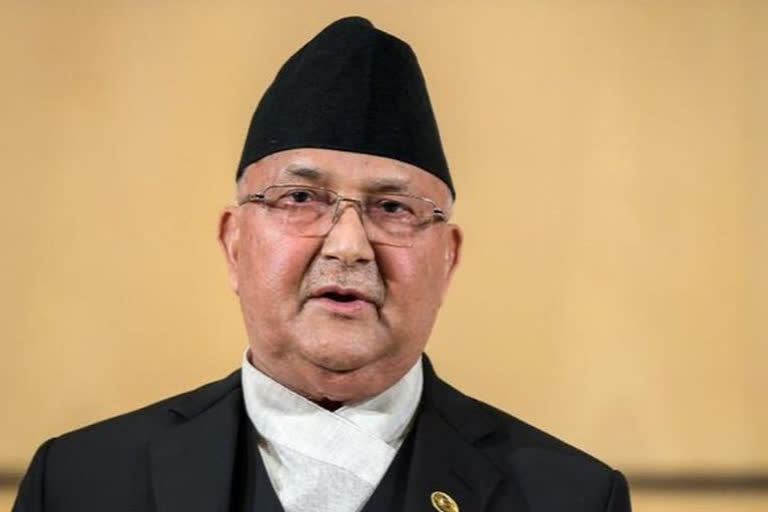New Delhi: The political blame game continues in the Himalayan nation, even weeks after Nepal’s Supreme Court struck down PM Oli’s decision to dissolve the lower house of Parliament.
Now it remains to be seen how the political situation in Kathmandu unfolds as uncertainty, instability runs high in the country, leading people to speculate what will happen when the next session of the House of Representatives is called before likely March 8.
ETV Bharat spoke to ex-ambassador and special envoy, Government of India SD Muni and another expert to try and get an idea of the whole scenario.
“Parliament will meet next and see what happens. There has been a try to manipulate Parliament from KP Sharma Oli’s party so that the vote of no confidence against him doesn’t come, but that is an exercise which anybody going after power will do. Firstly, the problem is whether other political parties are willing to support Oli or not”.SD Muni told ETV Bharat.
“Secondly, the Nepal Communist Party has not formally divided, therefore, technically Oli can claim that he is in power and that is the kind of statement Oli is giving publicly, challenging the NCP splinter faction led by Pushpa Kamal Dahal to remove him from the post if he can. This is a power struggle and it will unfold.
This is not something which can be predicted scientifically what will happen but much would depend upon what Nepali Congress does, because they have the number to join either the Prachanda faction or the Oli faction to form the new government”, he explains.
Naming the next Prime Minister could be tricky, Muni said, “The next prime minister would depend upon the coalition of the parties. If Nepali Congress is to support either of the factions, they might as usual demand support from its leader to be the next Prime Minister. Nepali Congress party President Deuba has already put forward his stakes”.
He underlines that there are stakes for Nepal including instability in the political structure. “In the political context, there has been no progress at all, there is no economic stability taking place on the covid front, the economic recovery seems to be a far cry in the Himalayan nation. Overall there are ample issues and the nation has to face those issues. The Prime Minister is not important but what would be the agenda of the government is more important. That agenda would depend upon the coalition of the government and which party is willing to support whom”, Muni reiterates.
In the 275-member Nepal’s House of Representative, NCP has 174 members, Nepali Congress has 63 and Janata- Samajbadi Party- Nepal has 34. Having said that, now all eyes are on Nepali Congress.
According to Nepal’s local media reports, both the factions of NCP have reached out to the second largest party-Nepali Congress in Parliament seeking its support in forming a new government.
The political tumult in Nepal took an ugly turn once again when PM Oli on Sunday challenged the ruling NCP’s splinter faction led by Prachanda to remove him from the top post ‘if he can’. This has heated the already distressing political situation in the country.
Addressing an event in his home district, Jhapa, Prime Minister Oli challenged the Prachanda-led faction to table a vote of the no-confidence motion and endorse that, My Republica newspaper reported.
Professor Harsh V Pant, Director, Studies and Head of the Strategic Studies Programme at Observer Research Foundation, New Delhi, said, “Nepal’s democracy is at stake at the moment and the shenanigans of the political leadership in Nepal is making it more and more difficult for Nepalese democracy to attain the kind of grounding that is needed.
Institutional fabric is getting weaken day by day with what is happening to the political institutions and the way PM Oli is becoming adamant in consolidating his power at the cost of the larger democratic revolution in the country”.
“This is going to be a long messy process, whereby, if Oli had resigned and gotten out of office gracefully, it would have been much better. But given that he wants to retain his office and the fact that the political consolidation against him is gaining momentum means that ultimately, it is the Nepalese democracy that will suffer”, the professor points out.
The year 2020 has been tiring, terrifying, tragic for Nepal and Nepal’s political scenario and democracy underwent some extraordinary changes with Prime Minister Oli’s decision to dissolve the Parliament on December 20 l, calling for fresh elections for April and May this year. This step was approved by President Bidya Devi Bhandari.
This move by Oli has dragged the Himalayan nation towards political instability and it can be viewed that the future of Nepal’s democracy is at high stake.
India had described Oli’s sudden move to dissolve the Parliament and call for fresh elections as an ‘internal matter’ that is for the country to decide as per its democratic process.




